It used to be that an electric vehicle (EV) was limited to passenger cars. Today, EVs are found in pickup trucks and off-road vehicles such as those found on farms. For farmers and land managers, buying an electric vehicle isn’t just good for their bottom line — it can also be great for overall operational efficiency.
There are major financial incentives in place to purchase and operate electric vehicles (EVs) for use on a farm or other applications like broad-acre landscaping (mowing). Having a basic understanding of various financial incentives, such as vouchers, rebates, and EV tax credits, what they are and how they work, can help farmers take advantage of them as they become available.
What Are EV Tax Credits?
Per the U.S. Department of Energy, an EV tax credit is a special tax incentive provided by the federal and/or state governments to incentivize the purchase and usage of electric vehicles. Electric vehicles include both plug-in electric vehicles (EV) and fuel-cell vehicles (FCV). In both cases, electric vehicles use electricity from the grid rather than using fossil fuels, which includes diesel, to operate. EV tax credits allow a person to deduct some of the cost of purchasing a qualifying electric vehicle from your reported tax. As of 2023, there are no EV tax credits available for off-road farm vehicles such as tractors. However, in the meantime, there are other types of financial incentives that help farmers purchase off-road EV vehicles, such as an electric tractor, for a reduced cost. .jpg?width=3840&height=2160&name=MT_Sept23_Beckstoffer-172%20(3).jpg)
How Do EV Financial Incentives Work?
EV tax credits, rebates, and vouchers are often confused with one another. Understanding the difference is key.
Federal and State Rebates
Several federal and state programs exist to provide a rebate to farmers for the purchase of off-road EVs. These federal and state programs provide various types of rebates and grants to farmers. These programs are based on different funding mechanisms. Generally, a rebate is like a coupon — a farmer purchases the product and gets a payment after the purchase to offset part of the purchase price. A grant is like a discount — a farmer gets a discount on the purchase price at the point of purchase.
Tax Refunds and Credits
A tax refund occurs when a person is refunded money after having overpaid their taxes. For the U.S. federal government, a person is taxed on their worldwide income. When a taxpayer files a tax return to the Internal Revenue Service (IRS) the taxpayer reports their total income, applies any credits and deductions, and the difference is their taxable income. After calculating taxes owed based on their reported taxable income, they compare their taxes paid to date versus taxes owed. If a difference is positive, the taxpayer notes this in their return and the IRS issues a refund. Many states have a similar taxation system.
A tax credit operates to reduce taxable income — it’s a claim that you receive that allows you to lower your tax liability for the year. In a way, it’s like a coupon that you can use on your annual tax return to pay less and lower your tax liability. One familiar example is the federal government’s ENERGY STAR program, which provides homeowners and business owners, including those of agribusinesses, a way to make homes and businesses more energy efficient through the use of ENERGY STAR-certified products and building improvements that reduce energy waste. These products have often been incentivized with a tax credit. A tax credit can be worth anywhere from tens of dollars to thousands.
EV tax credits work the same as any other tax credits, as they help lower your overall tax liability at the end of the year. Historically, federal EV tax credits have targeted passenger cars and EV charging stations. In the event that EV tax credits become available for off-road vehicles, a farmer could potentially lower their gross income by thousands of dollars. This means that come tax time, the overall tax liability will be reduced. EV tax credit programs can also vary by state. For instance, Colorado’s EV tax credit program applied to qualifying light-, medium-, and heavy-duty trucks for the tax year 2023. Other states restricted the EV tax credits to passenger cars only, while others don’t have an EV tax credit program. 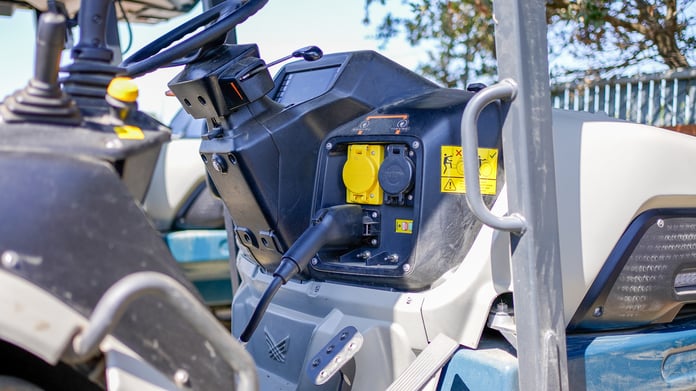
If you’ve ever received a check from the government after you’ve filed your tax return, then you’ve received a tax credit. The federal government and several state governments incentivize the purchase of a new EV technology with tax credits. This entitles the buyer to a discount by receiving a designated amount of cash back on their purchase in the form of a tax credit.
Vouchers
A voucher is like having a second party pay part of the bill for the eligible item or service — a farmer purchases the product and after paying part of the bill, the second party pays the balance. Although vouchers don’t impact a person’s tax liability, they can represent valuable savings.
California’s Clean, Off-Road Equipment voucher program, or CORE, is one state voucher program that has proven especially valuable for farmers purchasing or leasing zero-emission off-road equipment that is currently on the market. In the case of EV tractors, California farmers have been able to purchase an electric tractor for roughly the same price as a diesel equivalent. As a result, savings on diesel costs are realized immediately. Monarch Tractor has an EV tractor that amplifies the money-saving, return on investment (ROI) even more. Monarch’s MK-V, and MK-V Dairy tractors are 100% electric, driver-optional, and smart. Farmers save on labor, safety, and gain insights into operations for increased efficiency and productivity.
Historically, California CORE has enabled tractor operators to significantly reduce the upfront cost of transitioning to electric equipment contributing upwards of 60% of the purchase price. It's important to note that small businesses, including agribusinesses and construction, are now grouped to share a single funding pool when previously they had separate pools. For this reason, as well as growing interest and awareness of the program, funding is allotted quickly on a first-come, first-served basis. Those interested in CORE are encouraged to apply immediately to ensure the best chance of securing funding.
Why Are EV Tax Credits, Rebates and Vouchers Offered?
Federal EV tax rebates and credits, rebates, and vouchers are available to all residents, and numerous states have offered, currently offer, or are planning to offer additional such incentives. The rationale supporting these incentives is based on several key points:
- EVs help reduce carbon emissions. Many countries, including the U.S., have pledged to achieve net-zero carbon emissions by 2050 and EVs are a critical part of this goal.
- Lower emissions help improve air quality and health, especially those with respiratory diseases. Improving a population’s health can help significantly lower health care costs.
- EVs are much better for natural ecosystems than fossil fuels. The reduced CO2 emissions can improve air quality in ground-level atmospheres, which enables ecosystems to naturally restore themselves. For farmers, this is especially beneficial for crop yields and soil health.
- EVs eliminate annual fuel costs for farmers while also helping the U.S. become more energy-independent and less reliant on foreign fossil fuels. The combination with lower maintenance costs translates to higher profit margins for a farm.
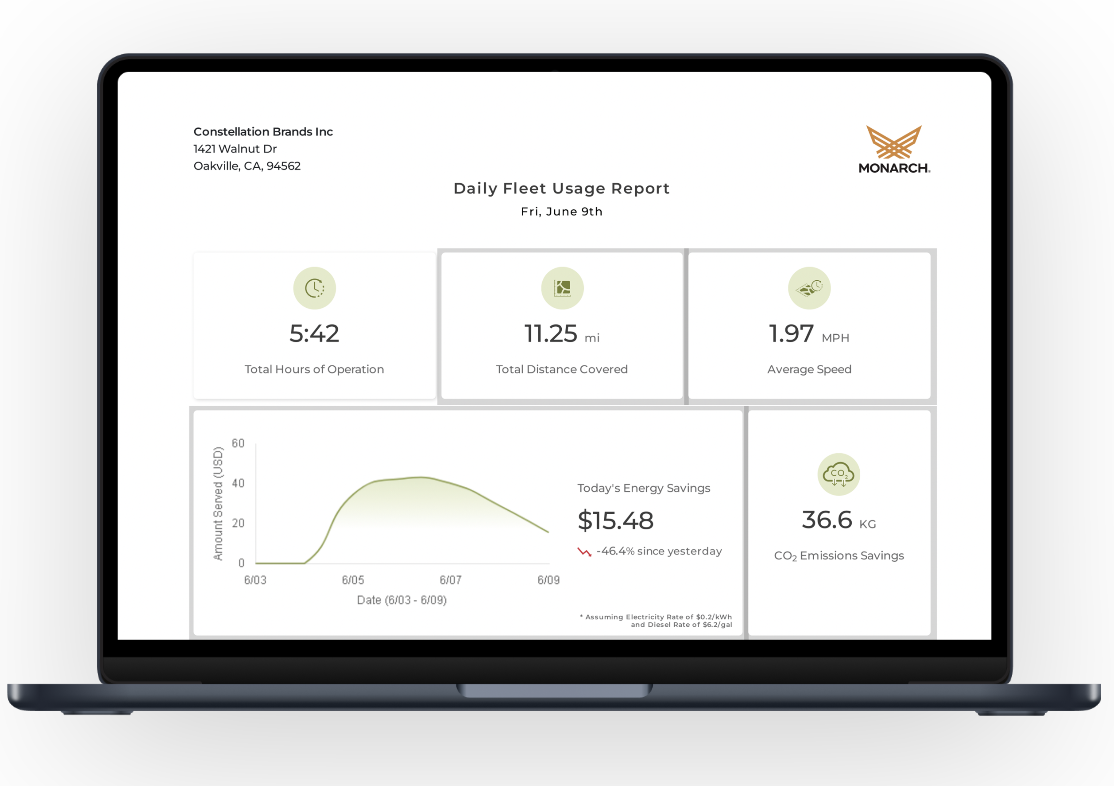
It’s important to note that EV tax credits, rebates, and vouchers are not randomized or universal. There are strict qualifications put in place that must be met to receive the EV tax credit or rebate. The majority of EV tax credits and rebates are currently intended for passenger vehicles and, in some cases commercial vehicles, but there has been a push for their expansion into off-road vehicles. For the tax year 2023, the IRS offers a detailed description of credits and eligibility for qualifying clean vehicles.
How Do State and Local EV Rebates & Vouchers Work?
Some tax rebates and vouchers can help with off-road EV vehicles in the form of purchasing a charging station and not for the vehicle itself. Others offset the cost of new machinery like electric tractors. Aside from federal EV rebates and vouchers, there are other types of financial incentives that can be useful to a farm. In the meantime, it’s a good idea to understand the difference between state and local EV tax rebates and vouchers to take advantage of one when the opportunity does arise. 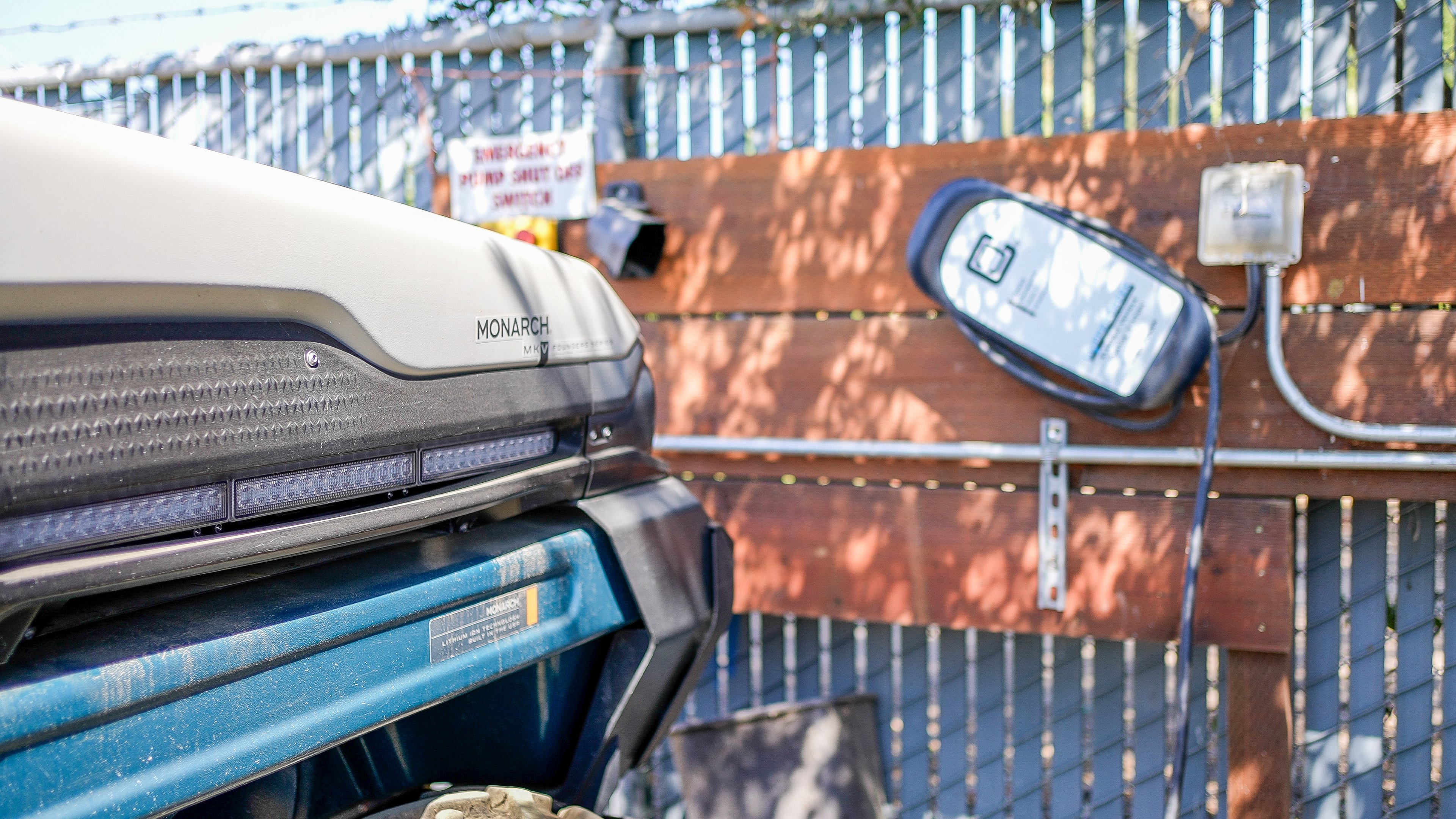 Federal vs. State and Local EV Rebates and Vouchers
Federal vs. State and Local EV Rebates and Vouchers
State EV rebates and vouchers can vary heavily depending on where they come from and the goals of the state that issues them. Generally, state EV rebates and vouchers or other types of financial incentive programs focus more on incentivizing the purchase of specific electric vehicles. For example, farm-heavy states may push for the purchase of off-road EV vehicles like electric tractors more often than smaller, more metropolitan states. There may even be additional financial incentives for EV charging stations, but the rules differ by state, so it’s important to stay updated on your state’s regulations. The U.S. Department of Energy keeps an updated list of all the states and their incentive programs related to alternative fuels and advanced vehicles.
For 2024, farmers can keep their eye on the Environmental Quality Incentives (EQIP) Program. EQIP is a scrap and replacement program that is able to be administered nationwide, but is only available in states that have opted into this federal program. Farms interested in utilizing the EQIP program should reach out to their local Natural Resources Conservation Service (NRCS) Office.
How Do You Apply for State and Local EV Rebates and Vouchers?
Similar to filing for a federal EV tax credit, you can apply for state and local EV rebates and vouchers by filing the right form with the agency providing the applicable rebate or voucher in your state. Your state’s website should provide the necessary information regarding its policies on EVs and any documentation required.
Whether it’s a tax credit, rebate, or voucher, state programs can be quite generous. California’s CORE, which can be used to purchase Monarch’s MK-V, has typically covered a minimum 65% or more of the cost of the tractor essentially making it cost-neutral in comparison to a similar-sized diesel tractor.
One strategy for finding and applying for state and local EV tax credits and other financial incentives is to go directly to the manufacturer and ask. A reputable company should have a team ready to assist you and find applicable financial incentives so you can maximize the product’s ROI. Recognizing that a farmer has precious little free time to sort through complicated paperwork, Monarch goes as far to submit the application for you and does as much footwork as possible to reduce your administrative burden.
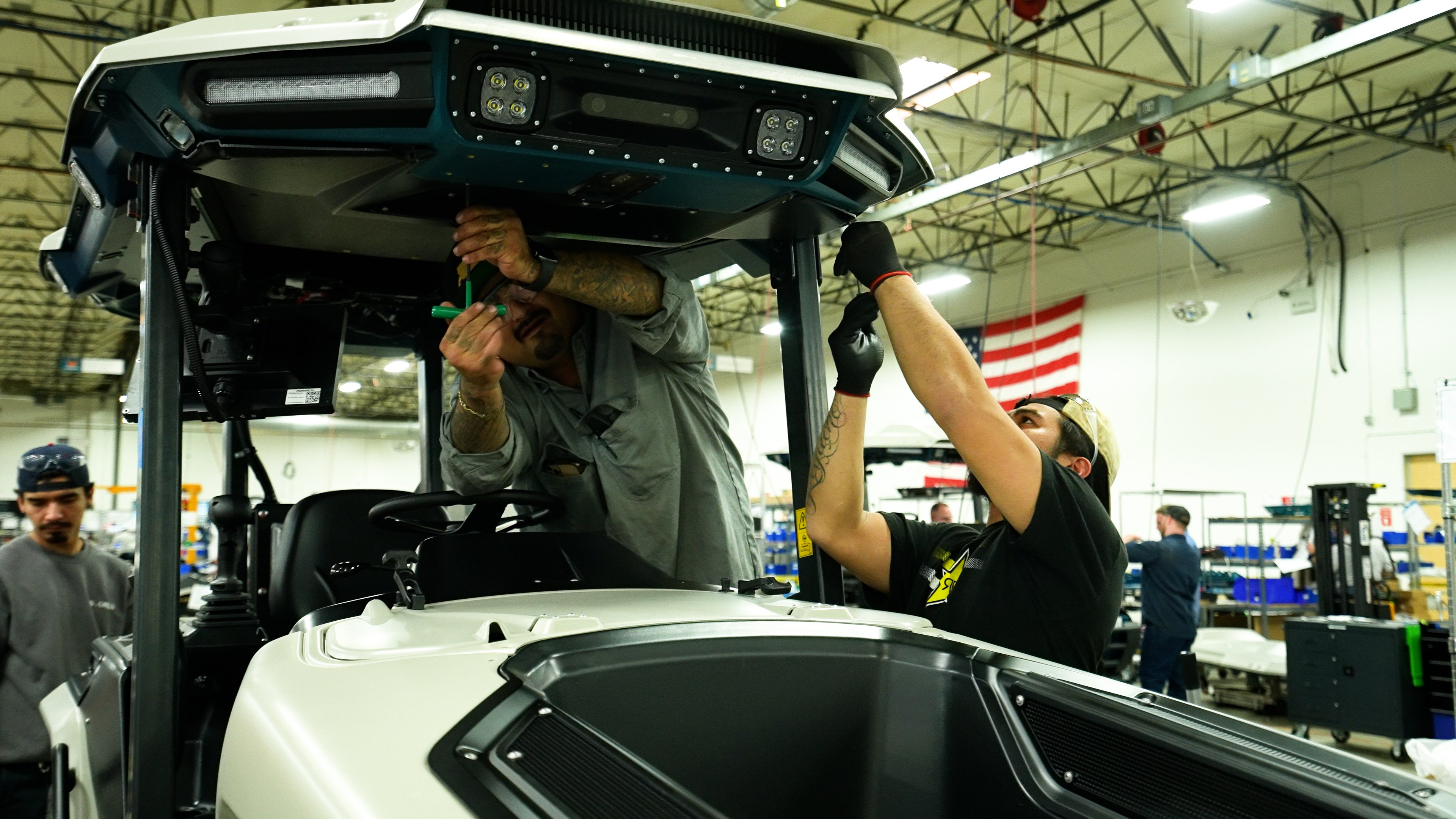
What Is the Economic Impact of EV Tax Credits?
While EV tax credits are not yet available to purchase a tractor, there are many benefits that EV tax credits have given passenger vehicle owners, giving us a glimpse of the gains that can be expedited in the ag industry. And it's worth noting that unlike passenger cars, helping farmers with more efficient, sustainable agriculture machinery strengthens food security in the U.S. and globally.
1. ROI for Individual Owners
EV tax credits or other financial incentives shorten the timeline to a higher return on investment (ROI) for individual EV owners. In addition to eliminating fuel costs, EVs are less expensive to maintain. According to Consumer Reports, EV owners are spending half as much to maintain their cars as owners of gas-powered cars.
Now imagine the savings in agriculture. Buying an electric tractor represents a large, upfront investment, but in the long run will save a farmer money on diesel costs. Additionally, an electric tractor has fewer moving parts, which means more affordable, easier maintenance that can save money and prevent operation delays due to equipment failures.
When the tractor is also driver-optional and smart such as Monarch’s MK-V, the tractor quickly becomes an appreciating asset whose ROI outpaces a tractor that is merely an EV tractor. Energy storage, real-time insights, easy-to-access reports, safety, and empowering a farm to be ready for future technologies are among the many benefits. A farm manager can set the tractor to carry out critical tasks autonomously while the team takes care of other vital work around the farm. One tractor operator can even monitor multiple tractors simultaneously.
2. Broader Economic Benefits
Just as EV in the urban mobility sector comes with environmental and human health benefits, farms are poised for even broader economic benefits. For starters, the lack of carbon emissions and ground-level ozone can improve the ecosystem of a farm and surrounding environment, thus contributing to a healthier crop yield. In the case of the electric, autonomous MK-V, a farm can use a tractor to mow autonomously, which eliminates associated diesel and labor costs that come with increased, repeated passes. When mowing becomes a financially viable operation, a farm can reduce or even eliminate the need to control weeds with herbicides. Not only does this save the farm the upfronts cost of herbicides but the hassles and expenses associated with safety compliance measures like personal protection equipment (PPE) are eliminated as well. These additional environmental and financial benefits can play a critical role in keeping farms – the backbone of the modern food chain – alive and thriving.
3. Future Trends of EVs and EV Tax Credits
Electric vehicles have been gaining steady traction and are becoming more prevalent throughout the economy. In addition, the federal or state governments may release more EV tax credits or other programs. Taking steps to be educated on EV tax credits now can help a farmer stay ahead of the curve and quickly claim incentives as they become available to ensure the most optimal ROI possible, better tax returns, and long-term farm sustainability both fiscally and environmentally.
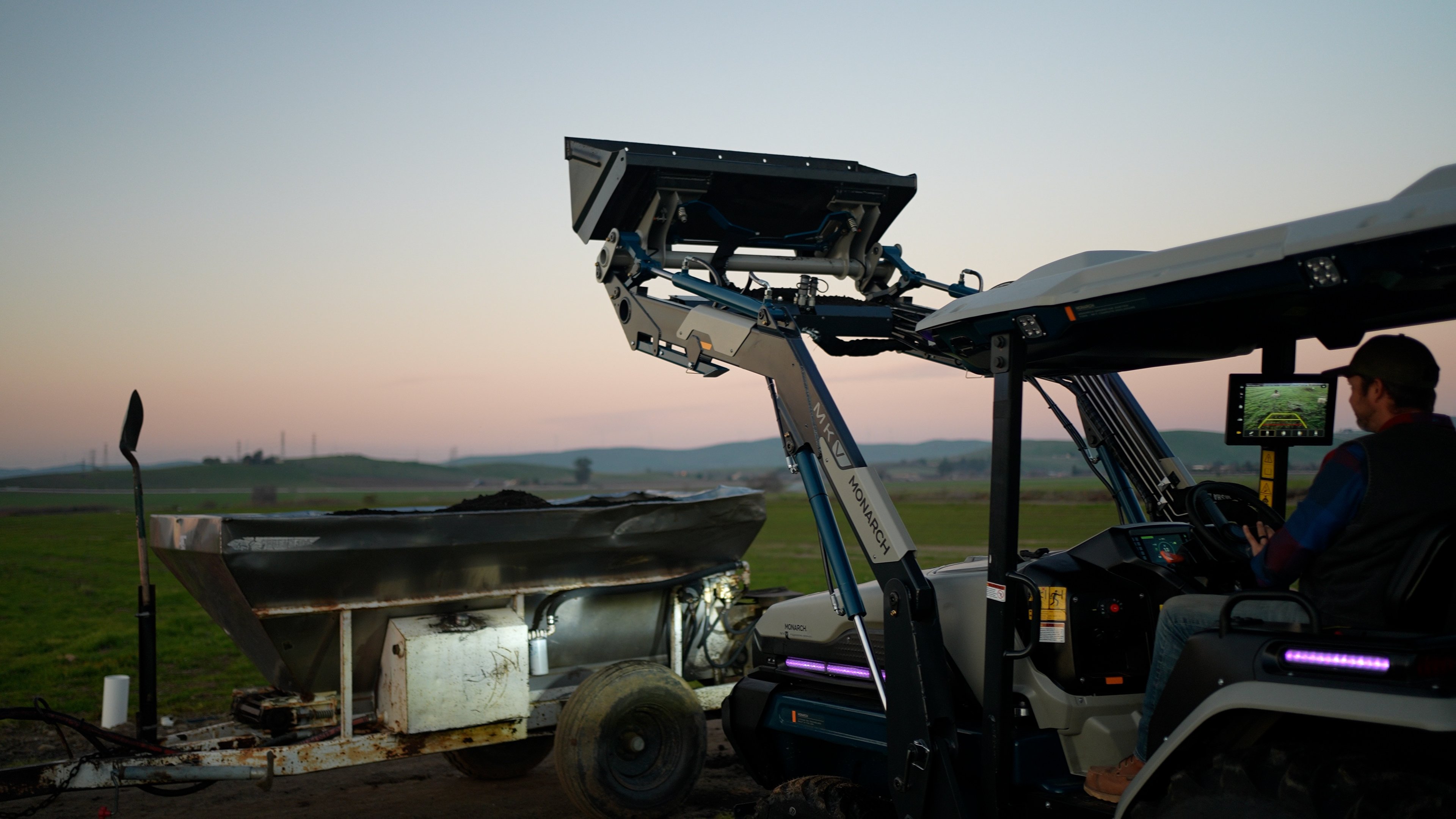
Pro-Profitability
Ultimately, EV tax credits and other financial incentives can be excellent ways to maximize your farm’s economic efficiency through the gains offered by new, electric vehicles. Stay alert and up to date to take advantage of ag-related tax credits and rebates as they become available.
Given the incredible monetary struggles fruit and vegetable farmers face, EV tax credits for ag equipment can make a measurable, positive difference in their farms’ long-term viability. Consider reaching out to your local, state, and federal representatives and discussing the value EV tax credits would bring to agribusiness and consumers. Finally, if you’re a farmer interested in Monarch’s MK-V tractor, Monarch Tractor keeps track of the financial incentives available through federal, state, and local programs.
References:
“Alternative Fuels Data Center: Electric Vehicle (EV) and Fuel Cell Electric Vehicle (FCEV) Tax Credit.” US Department of Energy.
https://afdc.energy.gov/laws/409
“Credits for New Clean Vehicles Purchased in 2023 or After.” Internal Revenue Service. https://www.irs.gov/credits-deductions/credits-for-new-clean-vehicles-purchased-in-2023-or-after
“Electric Vehicle Tax Credits.” Colorado Energy Office.
https://energyoffice.colorado.gov/transportation/grants-incentives/electric-vehicle-tax-credits
“Clean Vehicle Rebate Project.” California Clean Vehicle Rebate Project.
https://cleanvehiclerebate.org/en
"Recent State Updates.” U.S. Department of Energy.
https://afdc.energy.gov/laws/recent
“Instructions for Form 8936 (01/2023).” Internal Revenue Service.
https://www.irs.gov/instructions/i8936
“Income Tax Topics: Innovative Motor Vehicle Credit.” Colorado Department of Revenue.
https://tax.colorado.gov/sites/tax/files/documents/ITT_Innovative_Motor_Vehicle_Credit_Jun_2023.pdf
“The Federal EV Charger Tax Credit is Back for 2023: What to Know.” Kiplinger.
https://www.kiplinger.com/taxes/605201/federal-tax-credit-for-electric-vehicle-chargers
.jpg?width=660&name=MT_Feb23_FrontLoader-104%20(1).jpg)
.jpg?width=680&name=MT_Aug23_LakeCountyDemoEvent-15%20(1).jpg)


.jpg?width=680&name=MT_Sept23_Beckstoffer-175%20(1).jpg)